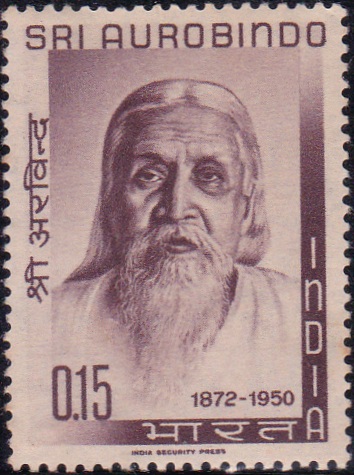
Sri Aurobindo 1964
A commemorative postage stamp on the 92nd Birth Anniversary of Shri Aurobindo Ghosh, an Indian Bengali freedom fighter and religious reformer, founder of Sri Aurobindo Ashram in Pondicherry :
Issued on Aug 15, 1964 (Saturday)
Issued for : The Posts & Telegraphs Department considers it a privilege to honour the memory of the great sage and seer, Sri Aurobindo, by the issue of a commemorative stamp on his 92nd birth anniversary on the 15th August, 1964.
Type : Stamp, Mint Condition
Colour : Plum
Denomination : 15 Naye Paise
Overall size : 3.91 x 2.90 cms.
Printing size : 3.63 x 2.62 cms.
Perforation : 13
Watermark : All over Multiple Lion Capital of Asoka
Number printed : 2.5 Million
Set : 35 per issue sheet
Printing process : Photogravure
Designed and printed at : India Security Press
Name : Aurobindo Ghose
Born on Aug 15, 1872 at Kolkata, India
Died on Dec 5, 1950 at Puducherry (Pondicherry), India
About :
- The latter half of the nineteenth century saw the birth, in India, of several personalities who attained high eminence in diverse fields. Of those, the name of Sri Aurobindo stands among the foremost. He was born in Calcutta on the 15th August 1872. After receiving his early education in India on western lines, he studied for fourteen years in England. He was a brilliant student and became a master of several European languages including Greek and Latin, passing the Classical Tripos from the University of Cambridge with First Class Honours and, winning all the prizes in the Classics. Later he came out successful in Indian Civil Service Examination.
- However, he did not join the Civil Service but, decided to devote himself to the task of freeing India from foreign yoke. As a student, he participated in the debates of the Indian Majlis at Cambridge, making revolutionary speeches demanding independence for India and, hinting at armed rebellion as a means of attaining it.
- On returning to India, he spent thirteen years in the service of Maharaja of Baroda, initially as an administrator and later as a teacher and officiating Principal of the State College. During these years he learnt several Indian languages including Sanskrit and made a deep study of the literature, the scriptures and, the cultural heritage of our country. He also gave expression to his ideas on political matters through his articles in the Indu Prakash of Bombay in 1893, in which he criticised the aims pursued by contemporary nationalist leaders and, put forth his own challenging and radical ideas on the subject. The British Authorities directed Sri Aurobindo to desist from publishing such articles. He then drew up his own plan for revolutionary work and took part in organising it in the Bombay Presidency and Bengal.
- The Partition of Bengal in 1905 threw him into the vortex of politics. He relinquished his post at Baroda and proceeded to Calcutta as Principal of the newly established National College at Jadavpur, where he plunged into the political turmoil with all his zeal and energy. In the Varanasi Congress of 1905 he played a leading role in the formulation of a policy for securing the Independence of our country. About this time he started the Yugantar, a Bengali daily and joined the Bande Mataram, the English daily of Bipin Chandra Pal. Through these newspapers he gave expression to his ideas of patriotism, love of freedom and sacrifice in the cause of the motherland. He published in the Bande Mataram his ideas on The Doctrine of Passive Resistance, charting out the way in which the Swadeshi and boycott movements were to be conducted. In the Calcutta Session of the Indian National Congress of 1906, Sri Aurobindo was first to declare openly, that “complete autonomy, free from British control“ should be the aim of the freedom struggle.
- Early in May, 1908 Sri Aurobindo was arrested along with thirty eight other revolutionaries. He remained in jail as an ‘under-trial’ prisoner for a year and, it was during this period that he reached the turning point of his life. Even as a young boy he is stated to have had mystic intimations of his own role in the political and spiritual life of our country. The Principal of the Sate College at Baroda, an Englishman, said of him “If Joan of Arc heard heavenly voices, Aurobindo probably sees heavenly visions“. Sri Aurobindo had the realisation of “Cosmic Consciousness” during his incarceration and had the vision of Shri Krishna everywhere. From this point onwards he devoted himself entirely to the life of the spirit and, whatever he wrote and said came from a source higher than the mind. Coming out of jail in 1909, he left British India and reached Pondicherry, then a French possession, on the 4th April, 1910. It was here, that his ashram was established. In the beginning it was not a planned institution but it grew as disciples came to him from all parts of the world to live in the ashram and learn his yoga. On the 29th March, 1914, a French lady reverently known as ‘The Mother‘ arrived in Pondicherry and joined Sri Aurobindo in his work. From the ashram, the voice of Sri Aurobindo reached the entire world through periodicals, books, essays and poems, revealing new truths about man’s destiny.
- The sequence of his thoughts has since come out in several books such as, The Life Divine, The Synthesis of Yoga, Essays on the Gita, The Human Cycle, The Ideal of Human Unity, The Foundations of Indian Culture, The Future Poetry, The Upanishads etc. Sri Aurobindo‘s greatest spiritual work in poetry is the epic Savitri which has 23,813 lines of verse.
- Sri Aurobindo Ashram in Pondicherry consists today of an international community of fourteen hundred people. The Sri Aurobindo Society, World Union and the Sri Aurobindo International Centre of Education are some of the institutions inspired by him and which propagate his message.
- Sri Aurobindo left his mortal frame on the 5th December, 1950 but the work that he initiated continues under the guidance of The Mother.


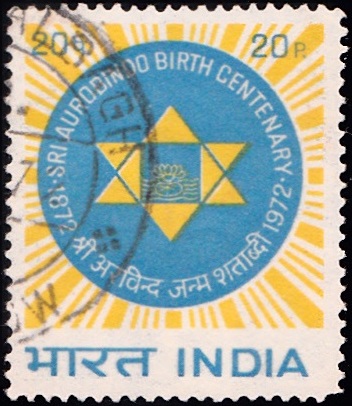

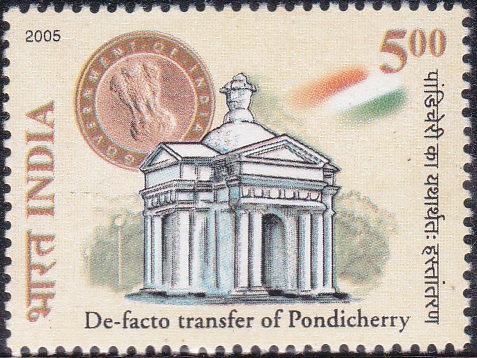
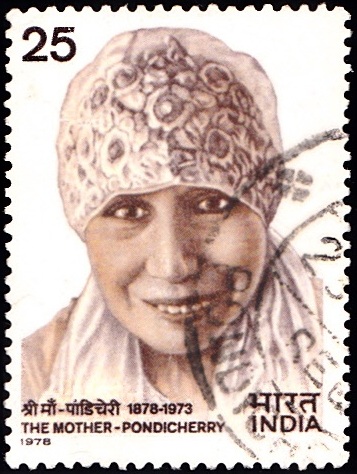
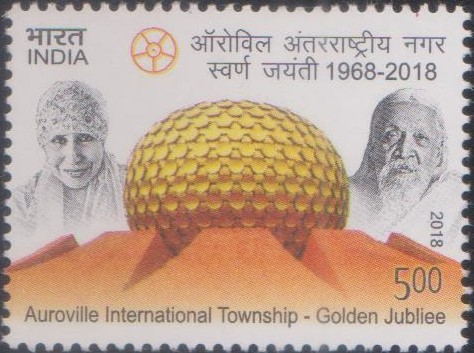
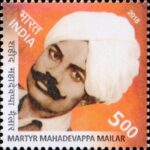
[…] writing in broader contexts. He was influenced by the progressive and philosophical writings of Shri Aurobindo and his essays and poems showed a philosophical touch under the influence of Shri […]
[…] State) on 30th December, 1887, he settled down in Bombay in 1901. He was deeply influenced by Shri Aurobindo Ghosh, who was his Professor at Baroda College. He married Atilaxmi Pathak when he was […]
[…] by Sri Aurobindo’s vision ideals of human unity, Mirra Alfasa, Sri Aurobindo’s spiritual collaborator and […]
[…] genius. She counted among her friends and associates such diverse personalities as Gokhale, Sri Aurobindo, Rabindranath Tagore, Jagdish Chandra Bose and the artist Nandalal Bose. True to her name of […]
[…] uprising for the freedom of the nation. Jatindra Nath‘s idealism and bearing impressed Aurobindo Ghosh, who advised him in the revolutionary movement for the independence of the Motherland. In […]
[…] we find in a country contemporaneously swayed by the spiritual splendour of Sri Aurobindo, the intellectual effulgence of Rabindranath Tagore, the moral grandeur of Mahatma Gandhi and the […]
[…] of the cause of India‘s freedom, the most famous of which was the case in which he defended Shri Aurobindo Ghose accused in the Alipore Bomb Conspiracy case, and his success in a number of civil […]
[…] a Lecturer at the Gujarat Vidyapith during 1922-23. Coming under the influence of Dr. Annie Besant, Sri Aurobindo, Rabindranath Tagore, Mahatma Gandhi and Marepalli Ramachandra Sastry (a freedom fighter) and […]